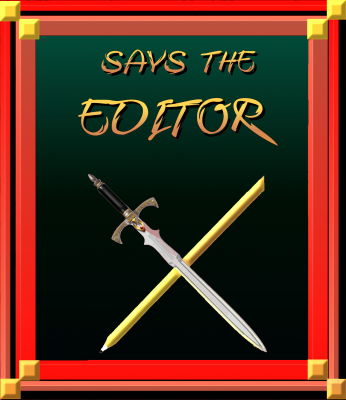August 19, 2021

I’ve been seeing this crop up lately, so let’s talk about how your narrative sequences things: cause and effect, or effect and cause?
Need an example? Here’s one: He turned when he felt…
Now, that seems like it’d work, right? It heightens the drama… He turned! Why did he turn? Well, keep reading and we’ll tell you it’s because he felt (whatever it was that he felt).
But do you see what’s happening here? You have effect and cause, not cause and effect.
Or, in other terms: The character reacts to something before the reader knows what s/he/they are reacting TO. It’s not only a reaction. It can be any motion out there. She walked up the front steps after closing the car door.
As an author working on your first draft, it’s one thing to do this. The first draft, after all, is for figuring out where the story’s going, what’s happening on the page, how the characters are moving (and why)… it’s for learning. This is why I always encourage authors to not be afraid to puke on the page. Get it out, get it down, go back and craft it later.
It’s that later that often becomes a problem. Because it’s one more thing you have to look for, be alert for, know if you have a tendency to do this or not. (Most of us do.)
Go on. Take a look at your work-in-progress. Do you have cause and effect, or do you have effect and cause? And can you think of a time when effect and cause is the better option? I actually can! Don’t rest on your laurels, though. Check your WIP. I bet you’ve got some.
Remember, if you’d like to work with Editor Susan over here, I’m now booked up until November. I’m only taking rush jobs from existing clients; I’m holding up too many careers as it is! And don’t set a bloody presale date until AFTER you’ve gotten your manuscript through the editing stage, just in case your editor is backed up and/or you wind up with unanticipated rewrites.
April 3, 2017
With the introductions out of the way, let’s talk about what every author wants to produce: the best book possible.
Some authors really are good enough to sit down, pound out a draft, go over it once or twice, send it to their editor, make the tweaks and fix the mistakes, and put it on the market.
Most aren’t.
Which means that producing the best book possible is going to take time. It’s going to involve figurative amounts of blood and guts and literal amounts of sweat. You’ll lose sleep over it. You’ll lose sleep because of it. You’ll take naps in the name of letting your subconscious work.
And you’ll sit down at the computer time and again and put down fresh words. And even more, you’ll sit down and craft the words you’ve already written.
You’ll push yourself to the point of being sick of your own words, your own story, the characters who chase you through your days and your dreams. And that’s when you’ll send your baby out to a beta reader, maybe, or an editor definitely, and hear words that always seem harsh and cold.
But you’ll dive back in anyway.
Because the best book possible isn’t going to hatch out of an egg. It’s going to take work. It’s going to take humbling yourself. It’s going to take pushing yourself beyond what you thought you could do, into places you dream of going.
And once you’ve done it enough times, you’ll hit a groove. You’ll approach that process where you can pound out a first draft and have it be almost ready for publication. That’s experience talking. That’s learning your own process and if you need to start a book with an outline or if you need to simply sit and let the story unfold around you. You’ll learn which instincts to trust and which internal monologues to ignore. And you’ll learn to win the battle against Inherent Writerly Insecurity.
It’s a lot. Writing a book isn’t easy, and the avalanche of bad books that are being published — by ALL publishers — shows that all too clearly.
Fortunately for you, there’s help along the way. And we’ll delve into that help later in the month.
For now and for always, focus on writing the Best Book Possible.